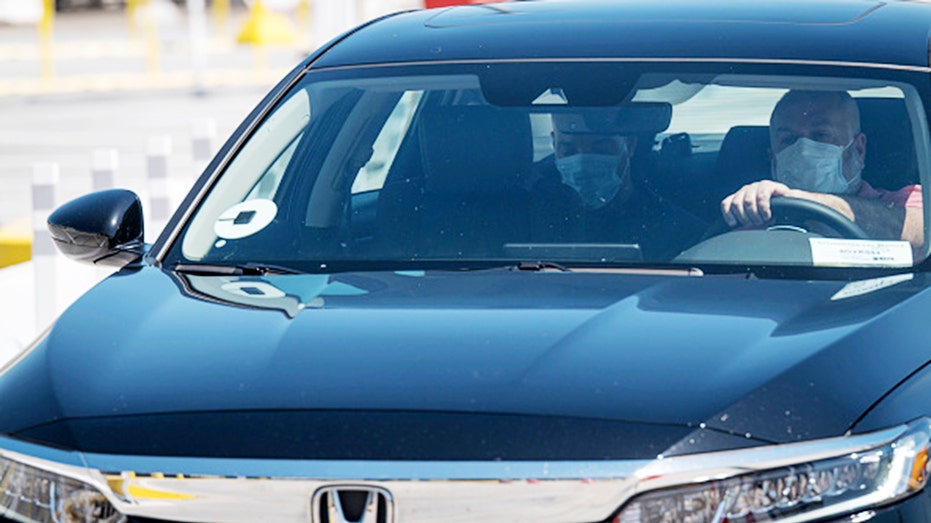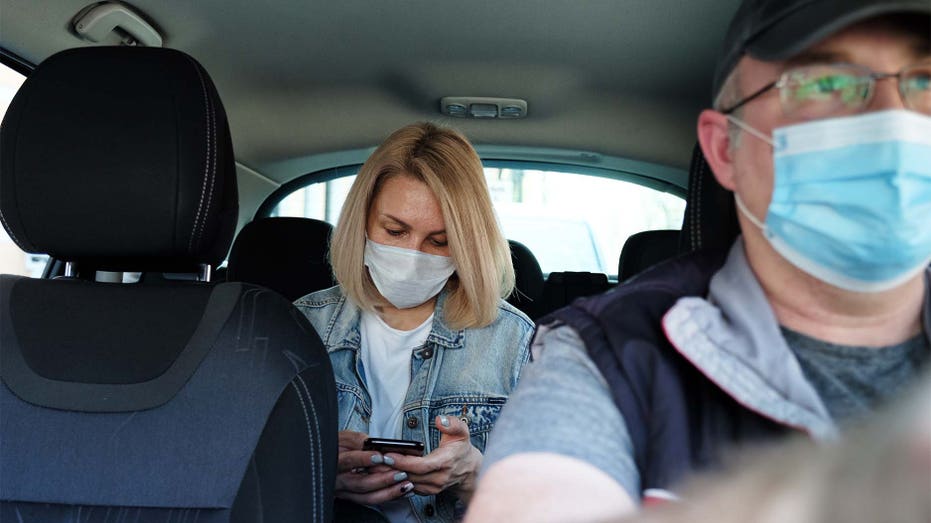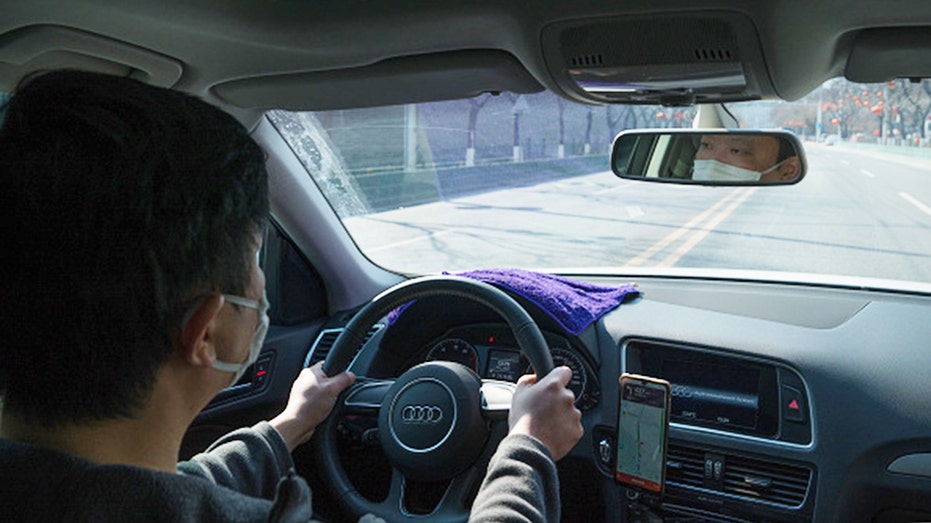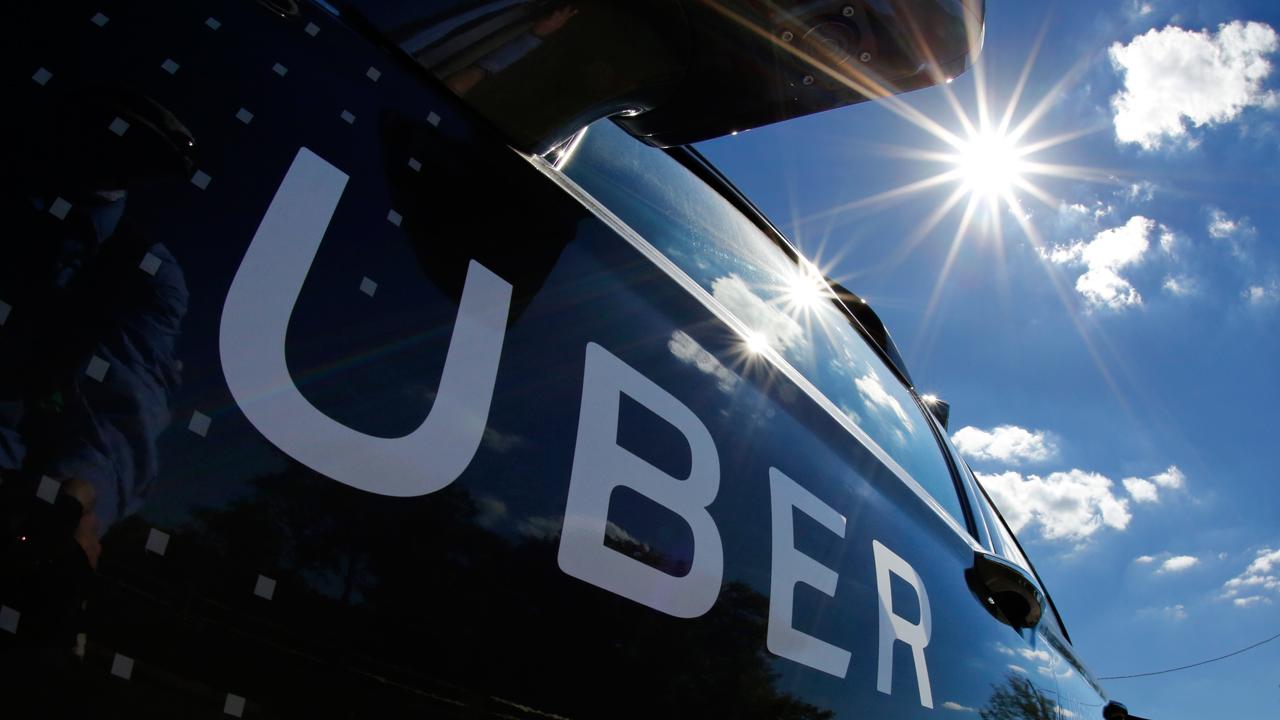Will coronavirus kill Uber, Lyft rideshare business?
Uber and Lyft both reported quarterly losses but saw year-over-year increases in revenue
Get all the latest news on coronavirus and more delivered daily to your inbox. Sign up here.
As fears of catching the novel coronavirus keep people at least six feet apart under state and federal social-distancing regulations, rideshare services could see lulls in business extend after the virus dissipates.
| Ticker | Security | Last | Change | Change % |
|---|---|---|---|---|
| UBER | UBER TECHNOLOGIES INC. | 74.77 | -0.44 | -0.59% |
| LYFT | LYFT INC. | 16.46 | +0.62 | +3.91% |
Ultimately, though, the companies are poised to bounce back from the pandemic stronger than they were before.
Uber and Lyft have both suffered losses as people avoid rideshare services and public transportation. Uber on Thursday reported a $2.94 billion loss in its first quarter, and Lyft reported a $398.1 million loss, but both companies had a year-over-year increase in revenue.

A driver and passenger wearing protective masks exit the ride sharing pickup area in a car displaying Uber Technologies signage at San Francisco International Airport in San Francisco, California, U.S., on Monday, May 4, 2020. Photographer: David Pau
"The earnings reports were not positive for Lyft or Uber, but Lyft did beat expectations," Will Rinehart, a senior fellow at the Center for Growth and Opportunity with a focus in innovation and technology, told FOX Business.
UBER, LYFT, DOORDASH CONSIDER CORONAVIRUS FUND FOR QUARANTINED DRIVERS
He added that the companies are expected to make "serious headway in the next couple of months" that will positively effect their business after COVID-19, but there is still the expectation that some people will be hesitant to use both public transportation and ride-sharing services.
"In the near term, people are going to be hesitant to get into these sorts of share services," he said. But retail, public transportation and substitutes can also expect to see similar problems, he said, highlighting a change in overall post-pandemic consumer culture rather than a change that will be specific to rideshare app services.

Caucasian woman in a car wearing face mask for protection / iStock
While the companies may have to push back long-term plans they had before COVID-19, one thing Uber and Lyft have done very well during the pandemic is come up with innovative ways to keep its drivers working and business generally booming.
CORONAVIRUS LEADS UBER TO OFFER 10M FREE RIDES, DELIVERIES FOR THOSE IN NEED
"Transportation is really sensitive to economic ills," Rinehart said. "I don't think anyone really has a sense of what will happen or how consumer patterns will change after COVID, but ... Uber and Lyft are trying to diversify their streams. They've also been trying to shift their business, and they're looking for other opportunities."
Uber's food delivery service, Uber Eats, had a 54-percent increase year over year. Uber also extended its delivery services on April 20 in response to the pandemic, including two new options Uber Direct and Uber Connect in select cities as extensions of its original Uber and Uber Eats apps, which will likely open up more work opportunities for the company's drivers during the outbreak.

A Didi (Chinese alternative to Uber) driver wears a mask while driving on February 15, 2020 in Beijing, China. (Photo by Andrea Verdelli/Getty Images)
Uber Direct will allow customers to order items from select retailers besides restaurants as an extension of Uber Eats. Uber Connect allows customers to send packages and letters to friends and families in a "cost-effective" way without having to visit the post office as a feature on the Uber app.
Lyft also launched an "essential deliveries" program in 11 cities in mid-April, FOX Business previously reported. The service brings groceries, medical supplies, home necessities, auto parts and other essential items to hundreds of government agencies, nonprofits, health care organizations and other businesses.
GET FOX BUSINESS ON THE GO BY CLICKING HERE
Both companies are offering free rides to health care workers and senior citizens in select areas.
These new services have proven successful for Uber and Lyft while ride service is down, and that success will likely continue as lockdown restrictions ease."
"Traditionally, we see these services as a counter-cyclical to the general economy," Rinehart said. "It will be interesting to watch [whether] Uber and Lyft will see an increase in the number of drivers signing up [after COVID-19] with more people looking to supplement income."
CLICK HERE TO READ MORE ON FOX BUSINESS




















